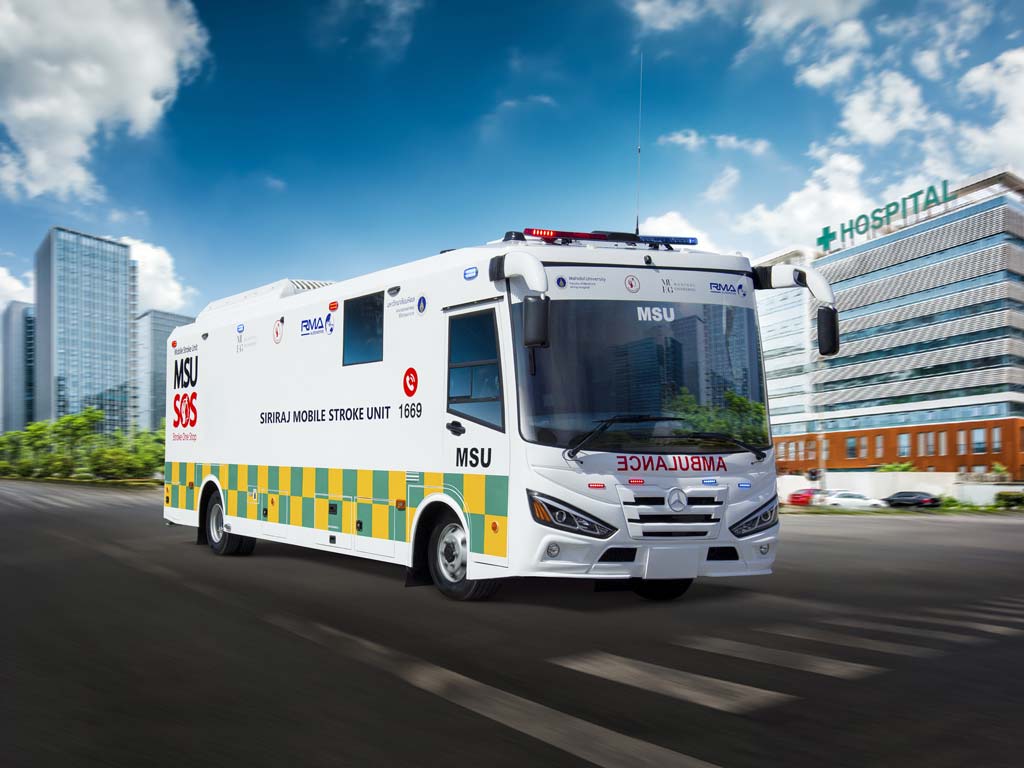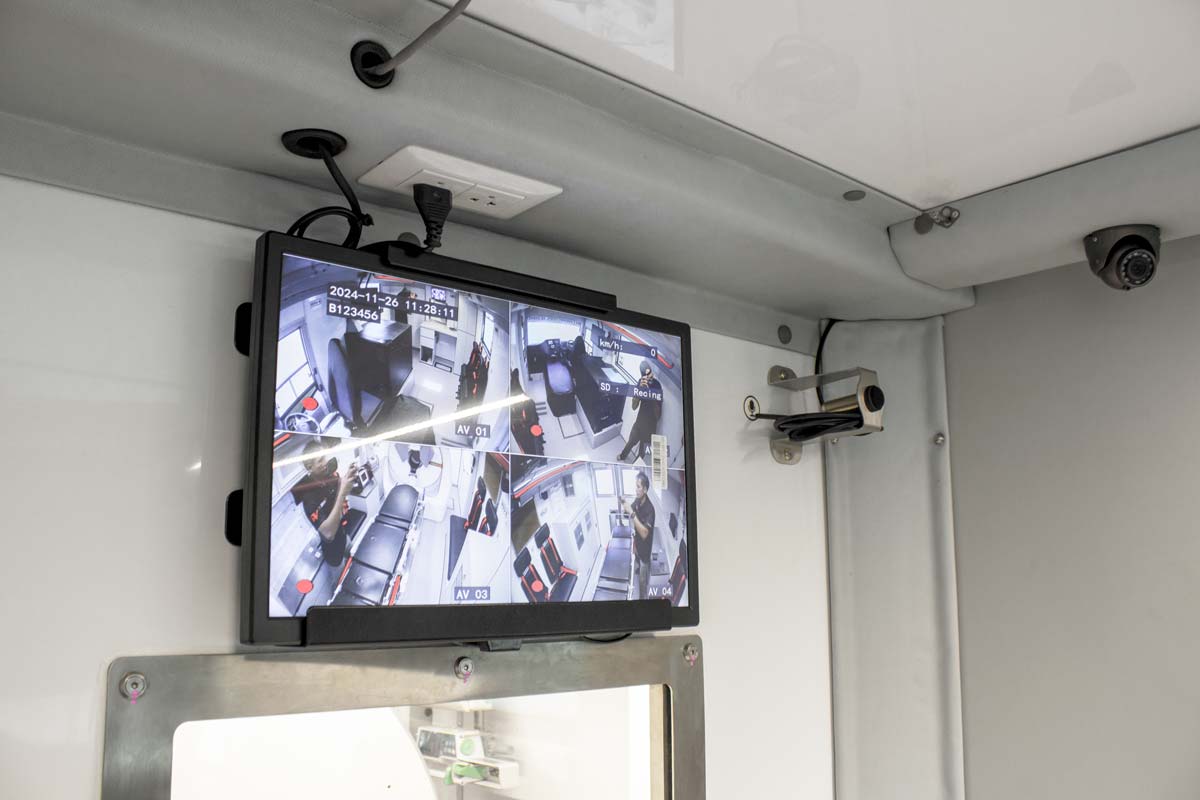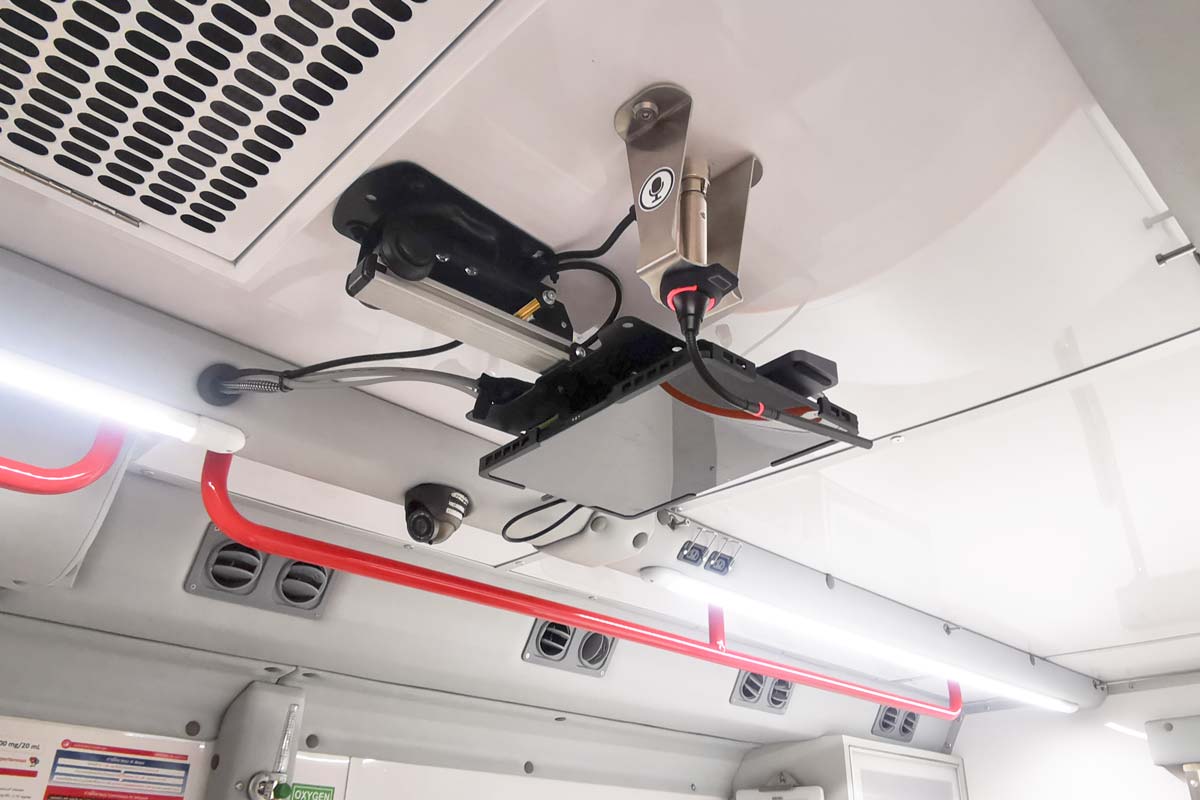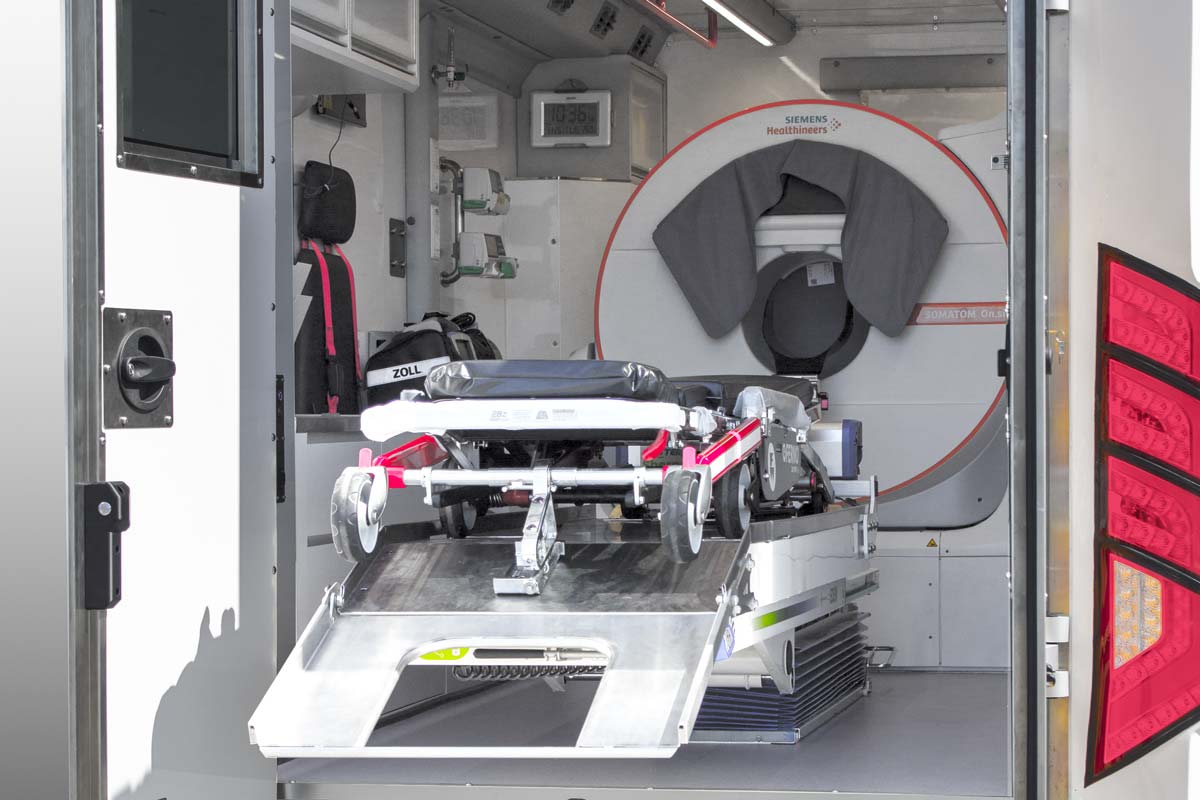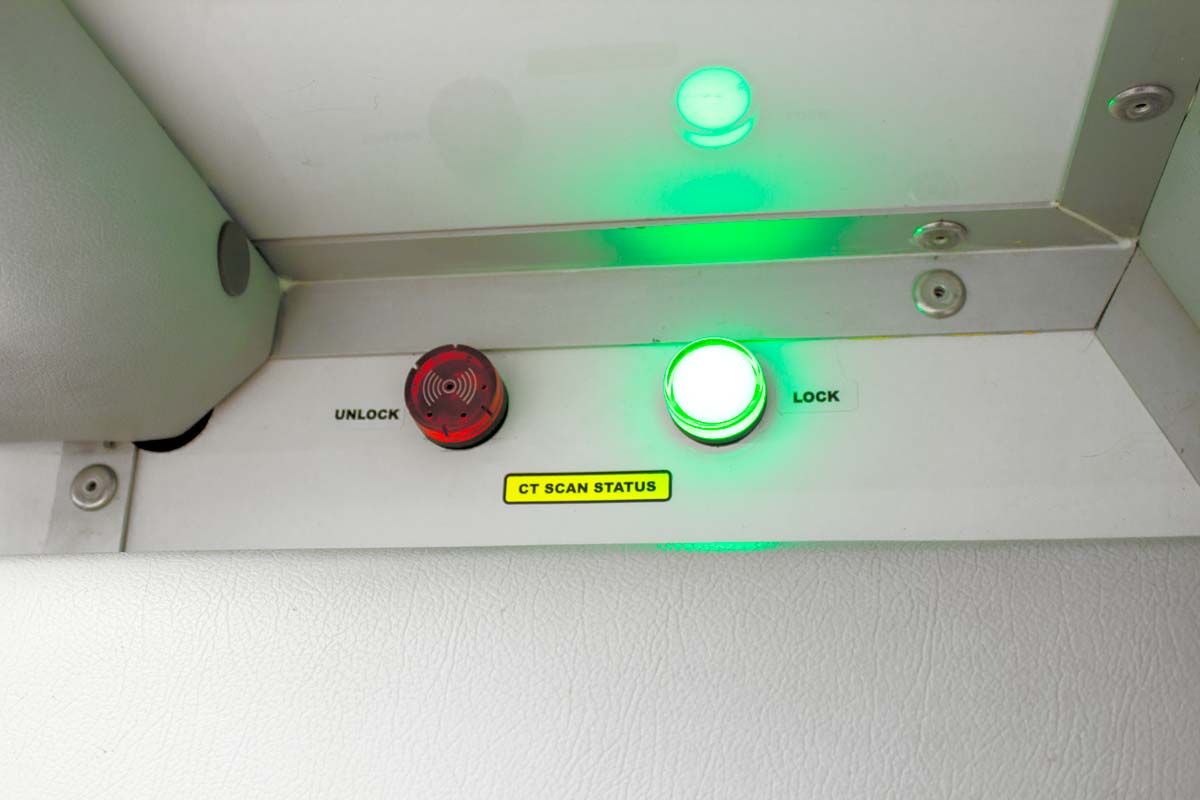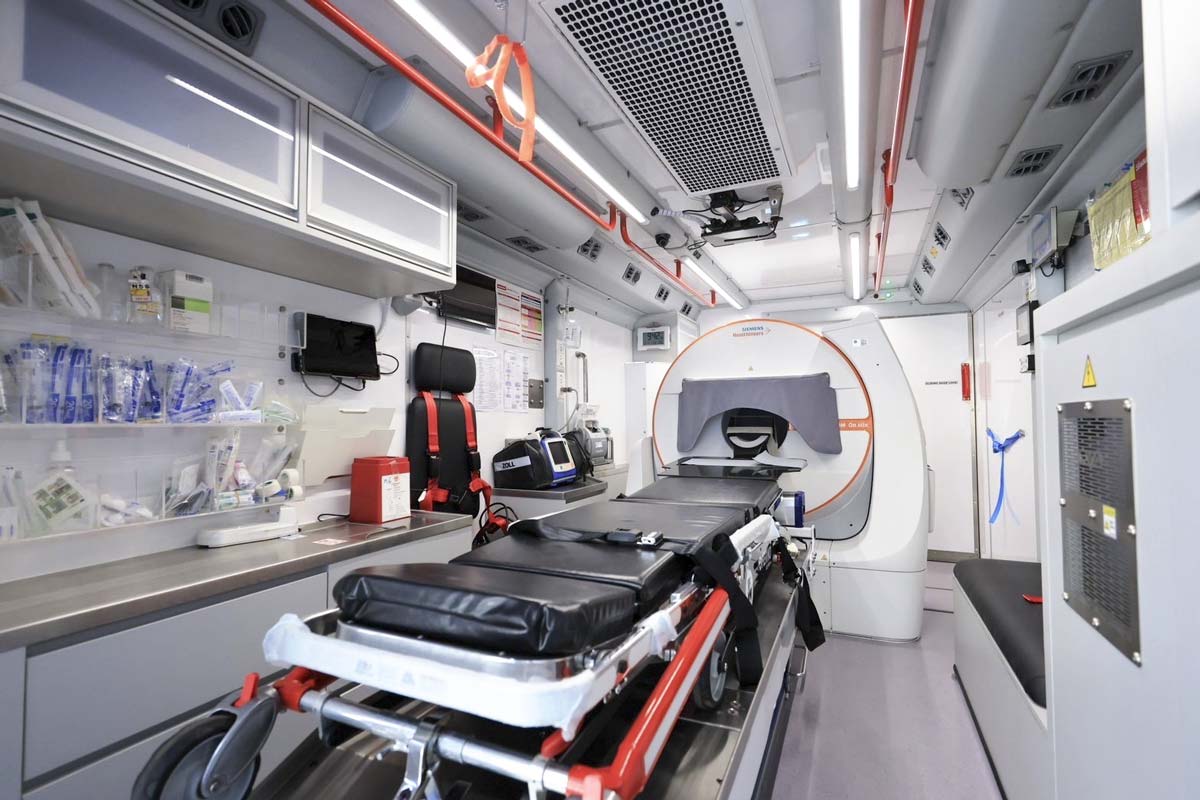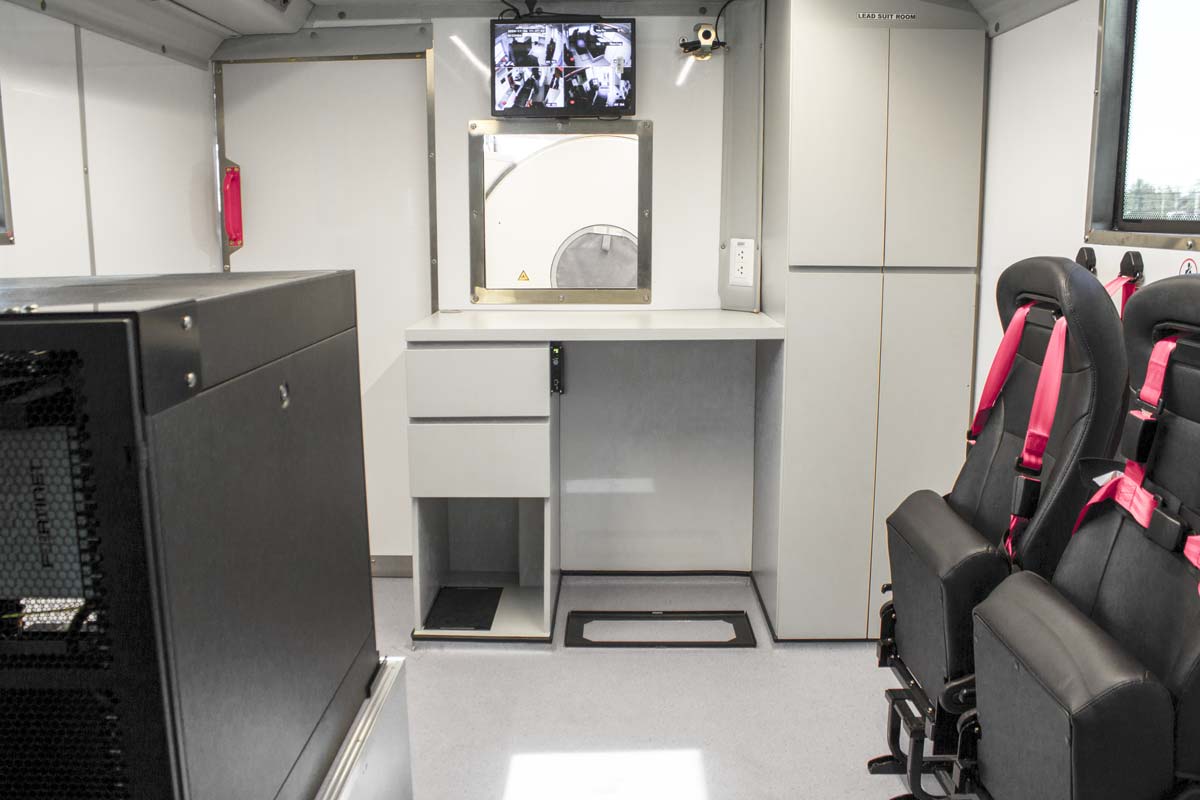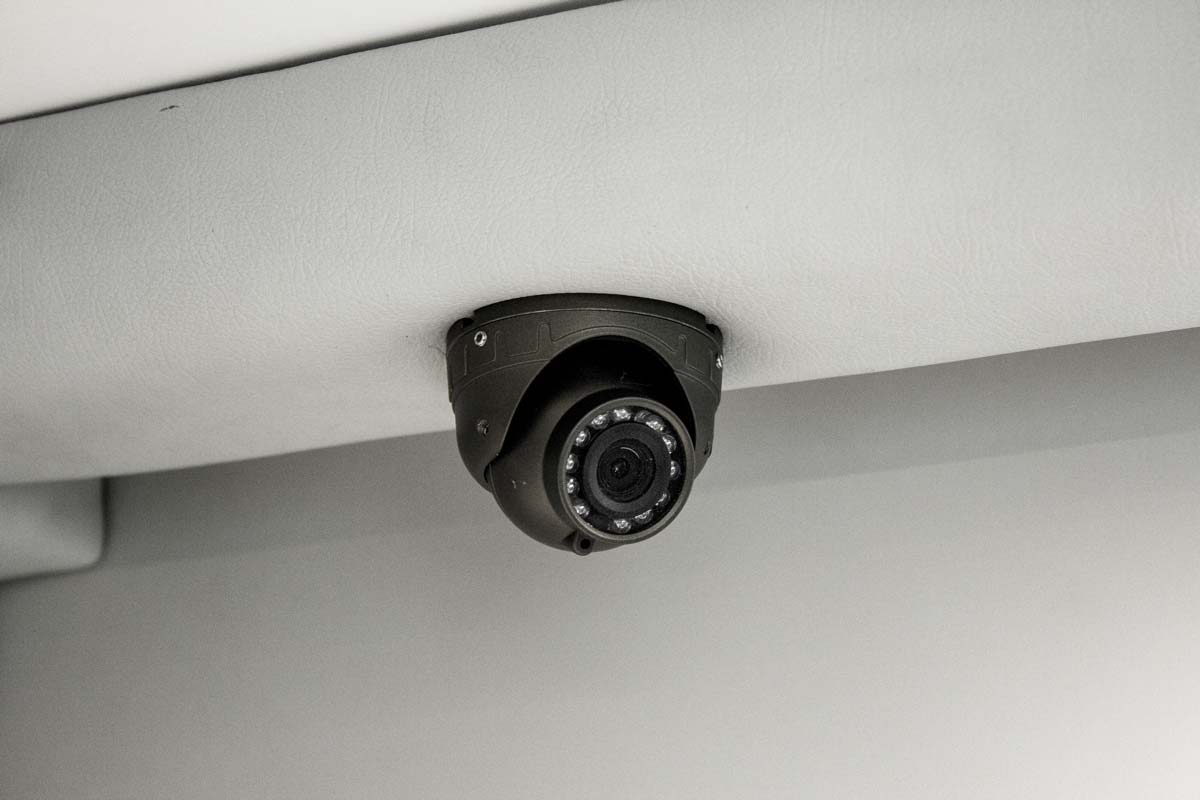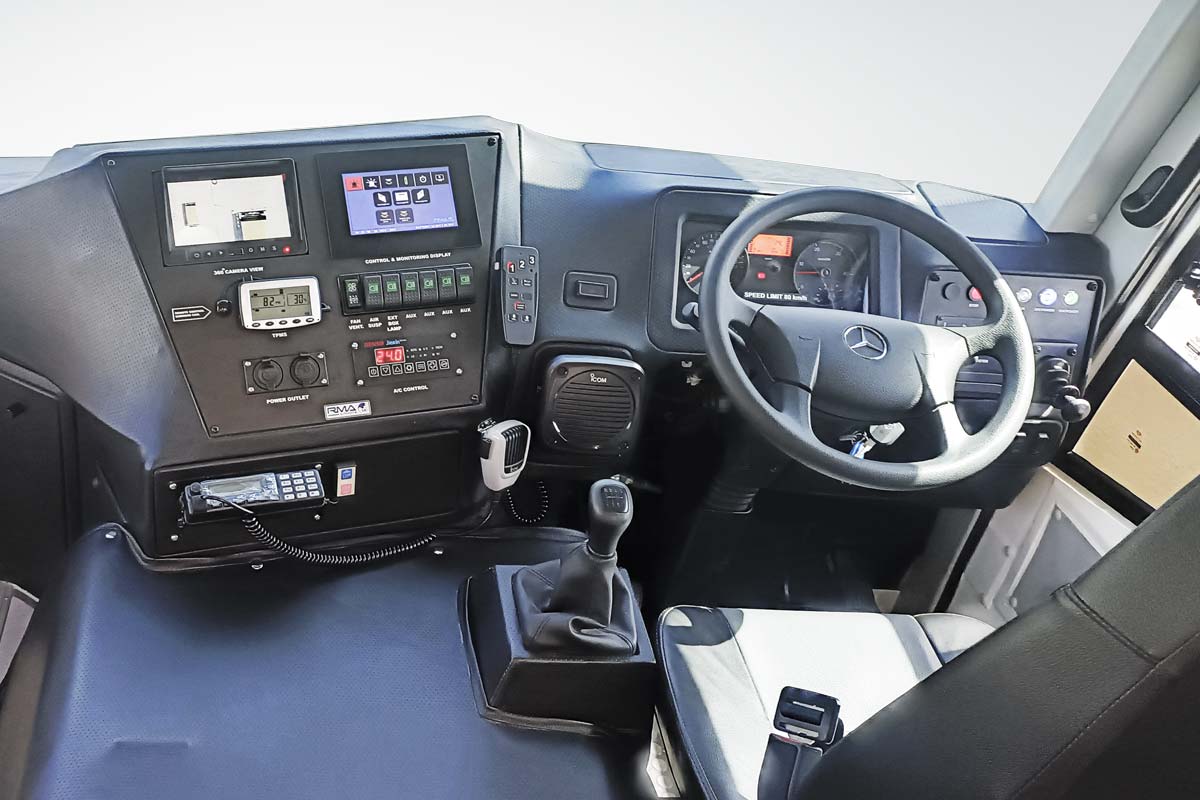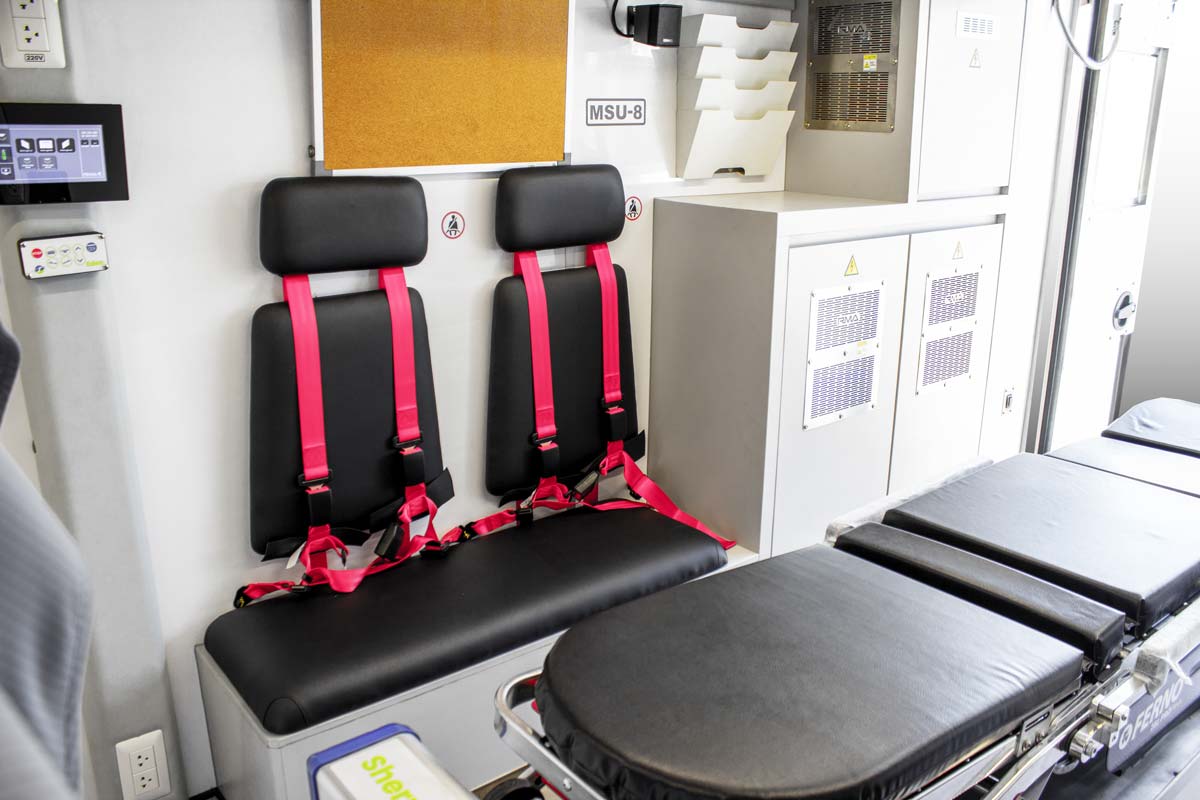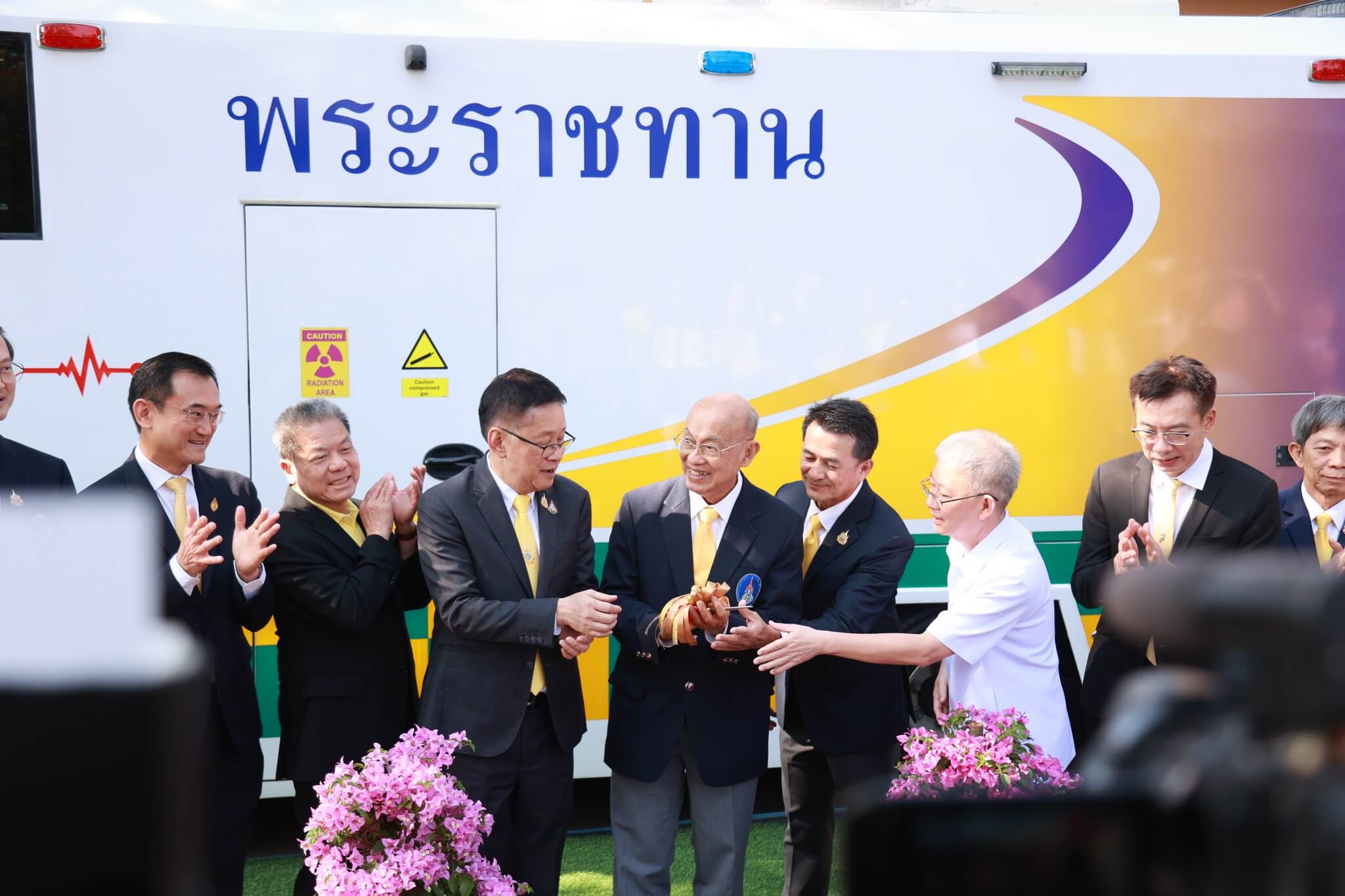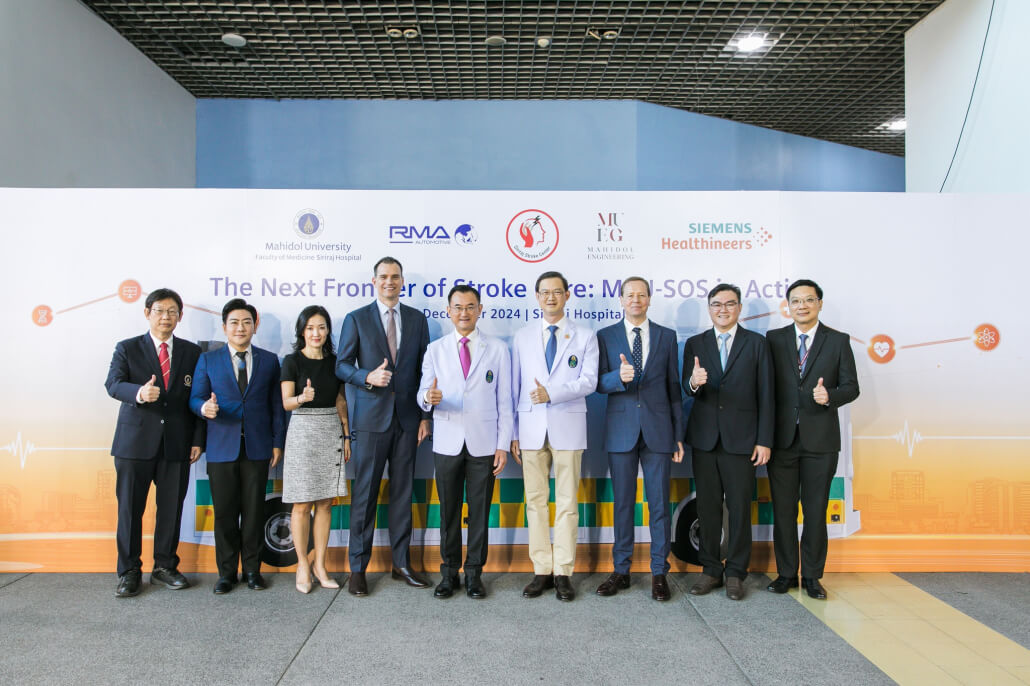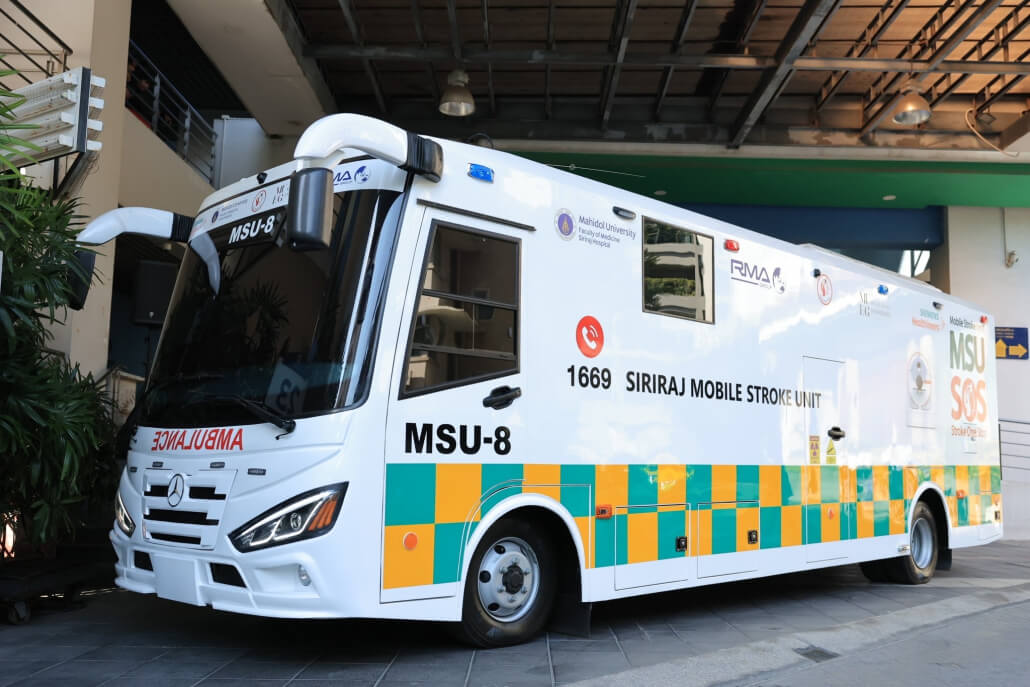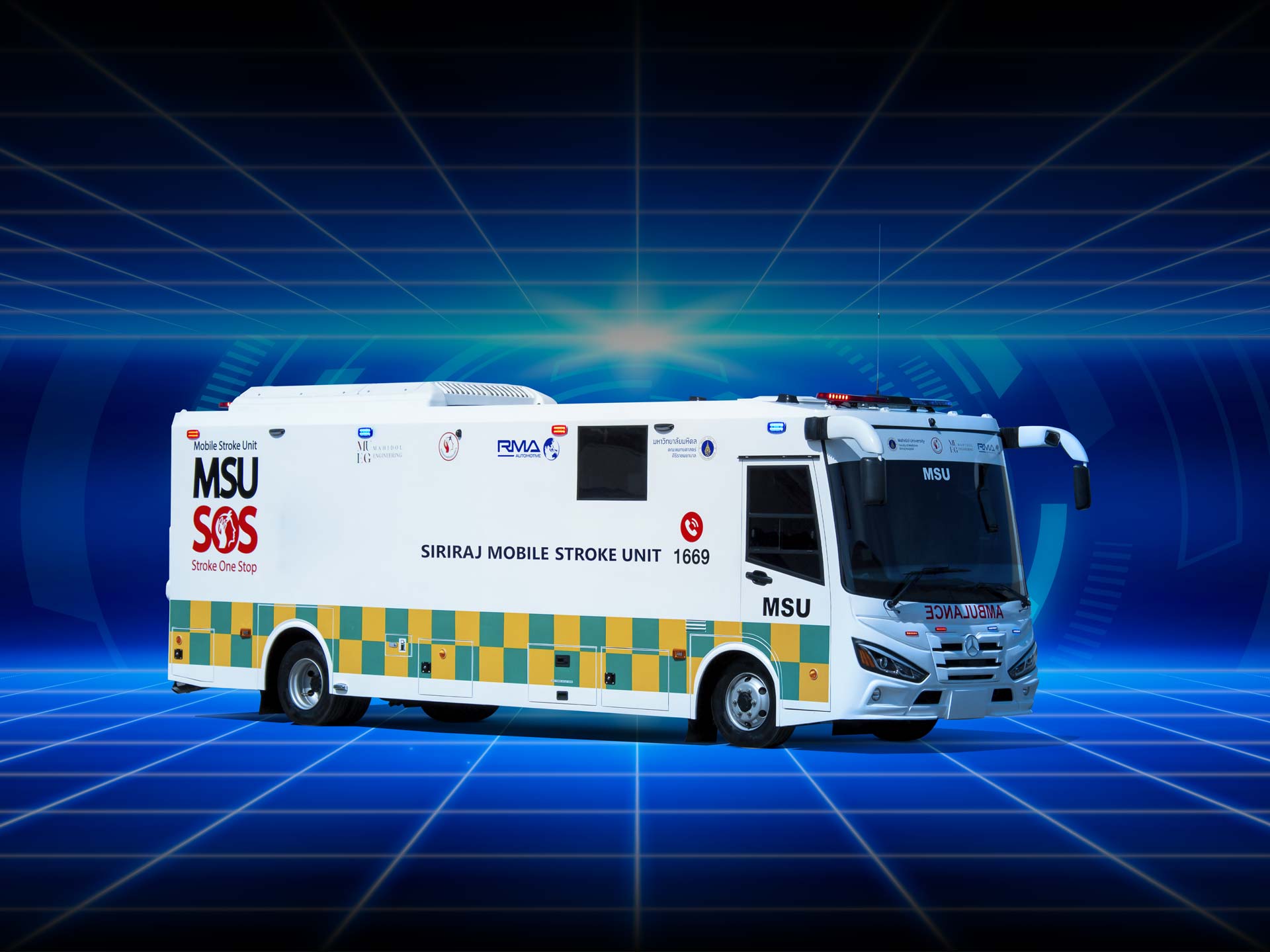
A Life without Stroke
The Mobile Stroke Unit (MSU) is a specialized ambulance equipped with cutting-edge technology to diagnose and treat strokes on the spot.
MOBILE STROKE UNIT
Send download link to:
By bringing the hospital to the patient, the MSU significantly reduces the time it takes to begin life-saving treatment, which is crucial in stroke care. Time lost is brain lost, and with the MSU, we are transforming the way stroke treatment is delivered.
- Fast Response with Complete Diagnosis & Treatment
- Total Solution for Acute Emergency Treatment
- Full Medical Information Integration Collaboration Platform
The MSU Mobile Stroke Unit
The MSU mobile stroke unit was developed through a collaboration between RMA Automotive, Mahidol University’s Faculty of Engineering, and Siriraj Hospital’s Faculty of Medicine. This partnership focused on designing a vehicle capable of supporting a heavy CT scanner, ensuring the structure and attachment points could withstand the weight and stresses involved. To achieve this, RMA used advanced engineering analysis, including Computer-Aided Engineering (CAE) and Finite Element Analysis (FEA), to simulate the forces acting on the vehicle under compression standards (FMVSS 220).
The design also adheres to international safety standards, including the BS EN 1789 standard for emergency medical vehicles, as well as local regulations from Thailand’s Emergency Medical Institute (EMS) and the Excise Department’s 2018 Royal Gazette announcement. The result is a high-performance mobile stroke unit that meets the rigorous requirements for patient care in emergency situations.
Through this project, RMA Automotive has further advanced its engineering capabilities and automotive technology, positioning itself as a leader in mobile medical solutions in Thailand and beyond.

World-Recognized Stroke Solution
In 2023 it was awarded the grand prize at the invention symposium, WorldInvent Singapore. In the case of a stroke, early treatment is essential to ensure the best rate of patient recovery. Purpose-built with a CT scanner on board and connected via ultra-fast 5G to the neurologist, the MSU allows for radiological diagnosis, evaluation, and effective early treatment of stroke patients.
The MSU is stationed at satellite locations with easy access to main roads and highways that can be easily reached by ambulances to cut down on transfer times.
Aside from the CT scanner, the medical interior is outfitted with computer systems and other specialist equipment. A specially designed access ramp moves the stretchered patient into the ambulance interior. Power is provided by independent inverters while integrated stabilizers are deployed to create a perfectly steady environment.
Stroke is a complex and time-sensitive medical emergency
Early Action is important for stroke.
- Annually, 15 million people worldwide suffer a stroke. Of these, 5 million die and another 5 million are left permanently disabled.
- Patients treated within the first 60 minutes are twice as to recover fully.
- Up to 1.9 million brain cells die every minute during a stroke. Mobile Stroke Unit cuts the time to treatment by up to 50%.
Upon arrival, the specialists performs an on-site CT scan to determine the type of stroke. With the help of 5G/4G Emergency Stroke Consultation, a neurologist reviews the scan and advises on the treatment plan in real time.
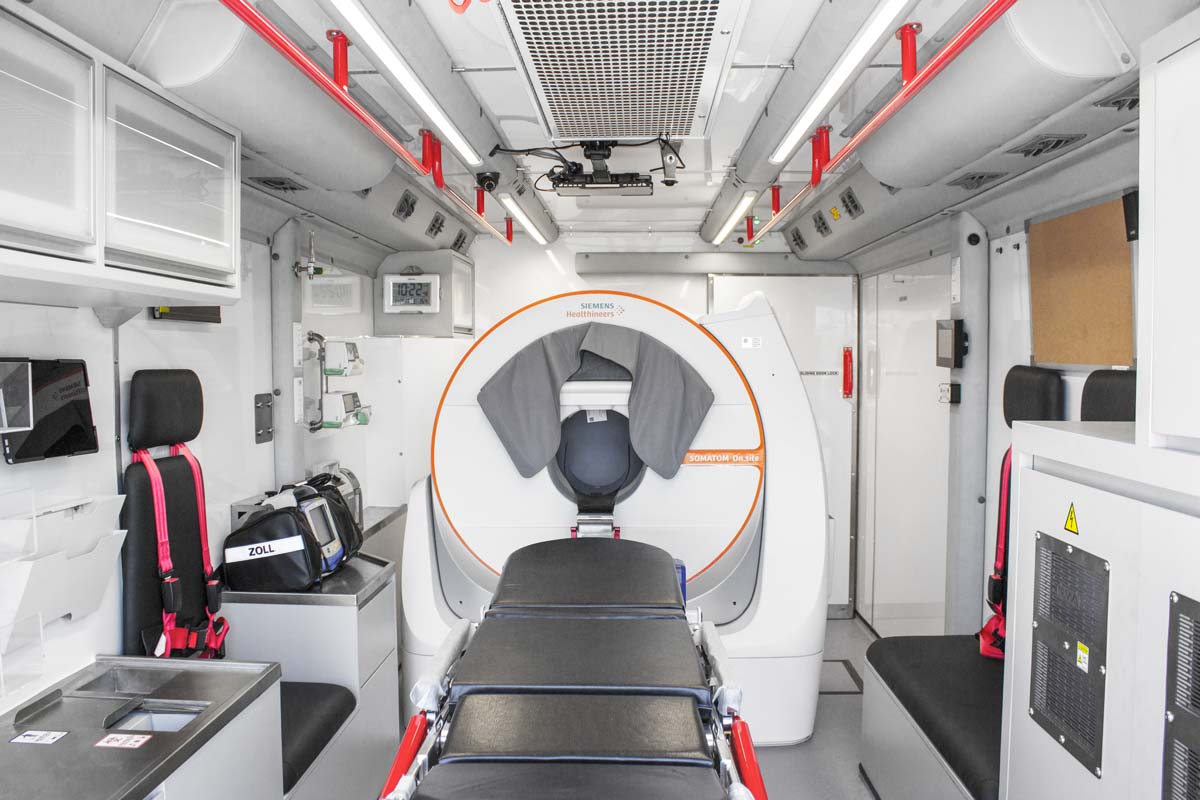
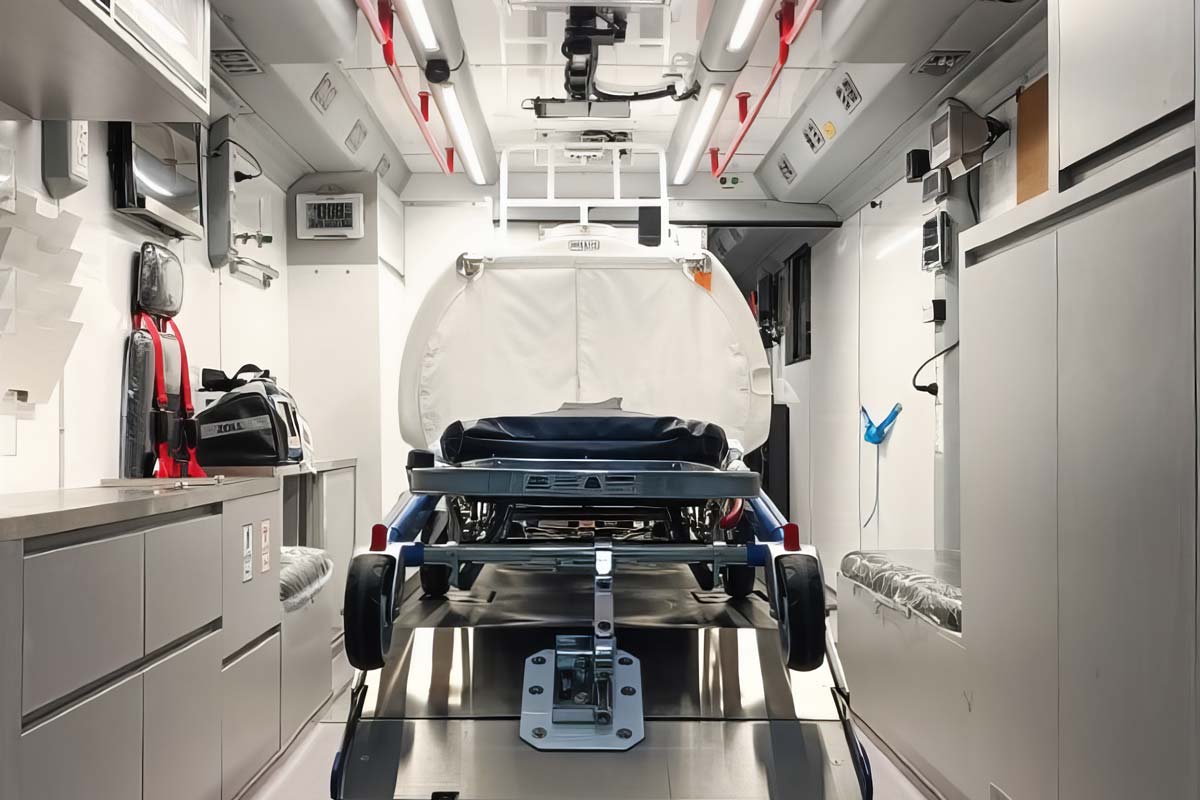
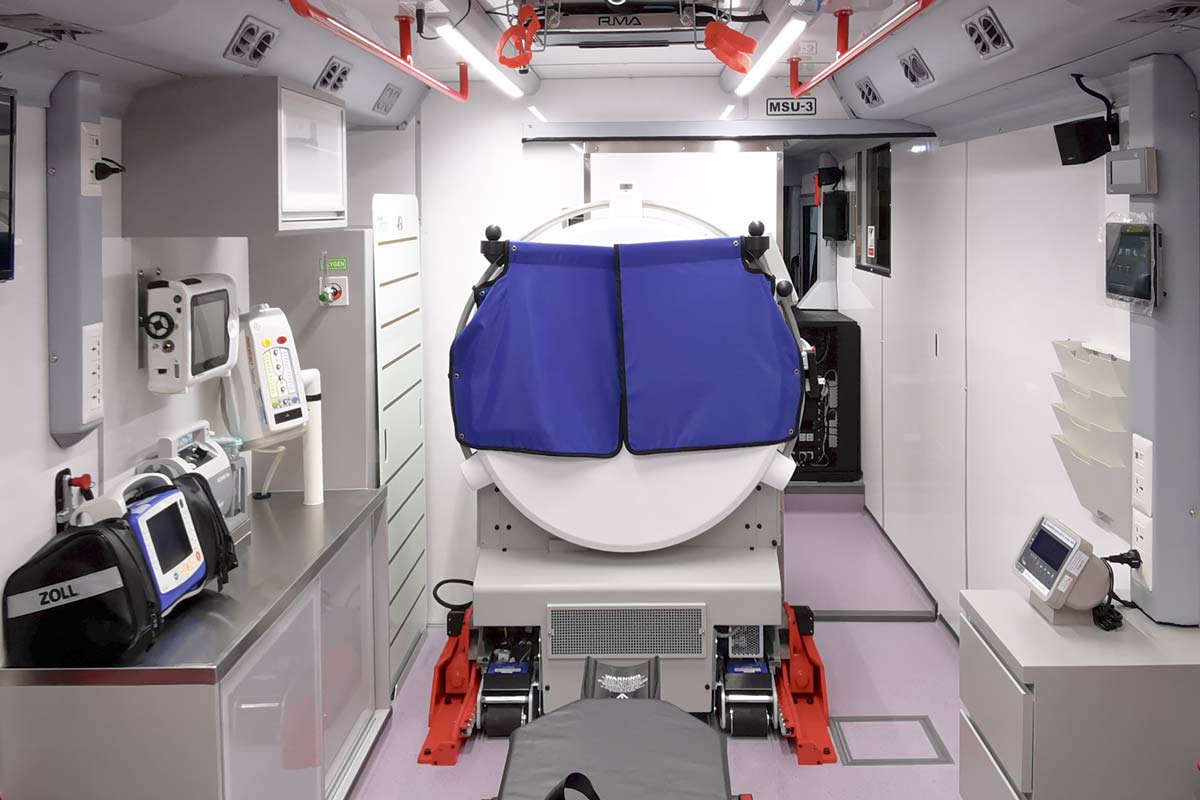
State of the art technology
The MSU-SOS is outfitted with the latest medical technology to ensure the best possible care for stroke patients. The onboard CT scanner allows us to perform brain imaging on-site, critical for determining the type of stroke and the appropriate treatment. With 5G/4G Emergency Stroke Consultation, our onboard team can consult with leading neurologists in real time, ensuring that each patient receives expert care without delay.
Experience the MSU from different angle
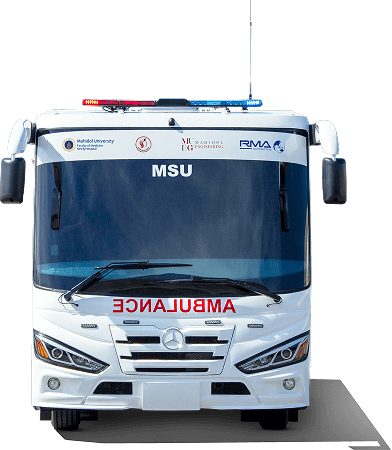

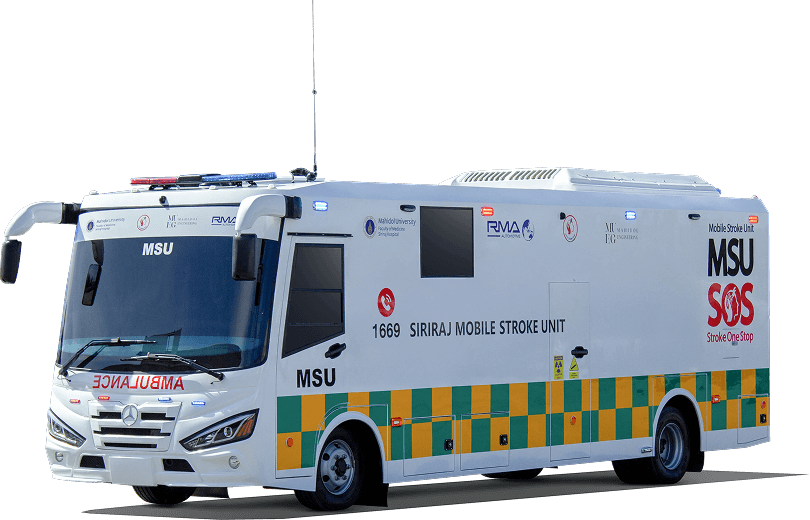
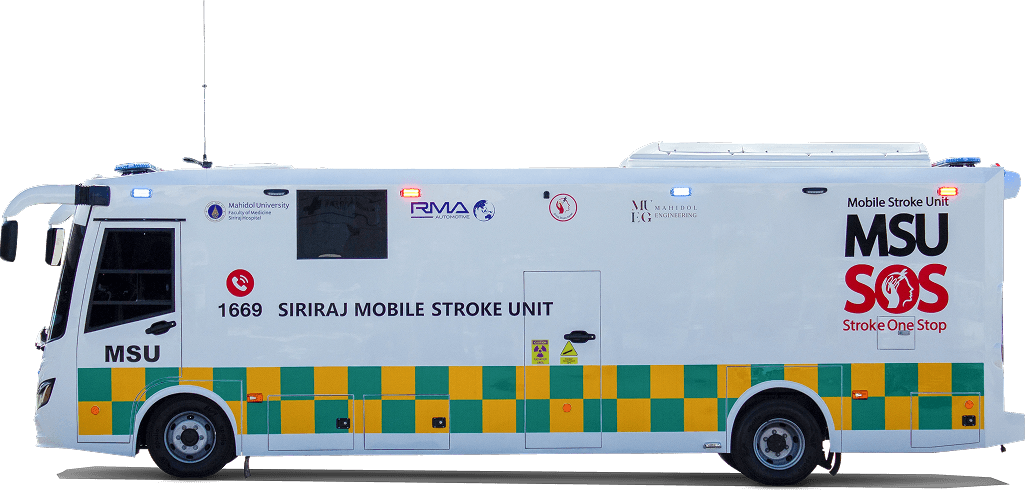
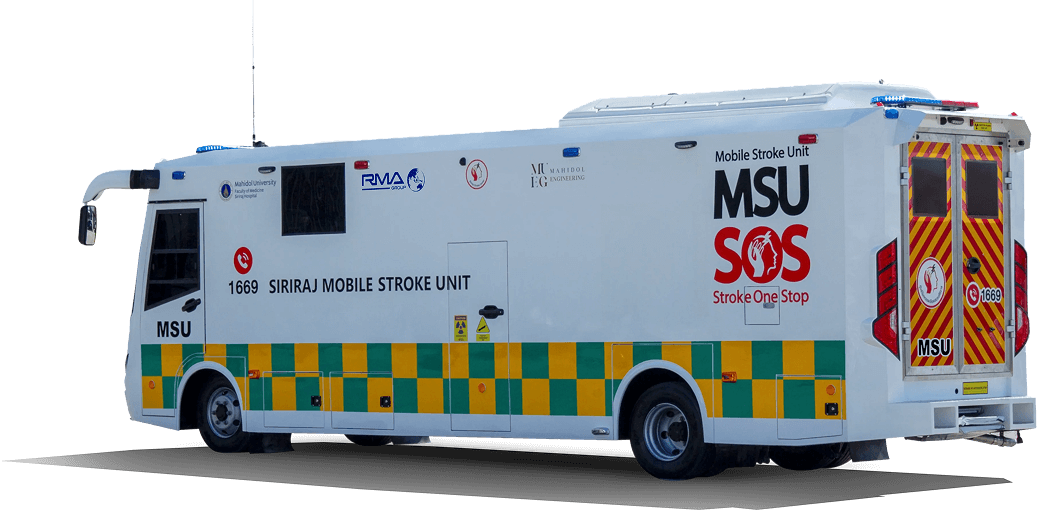
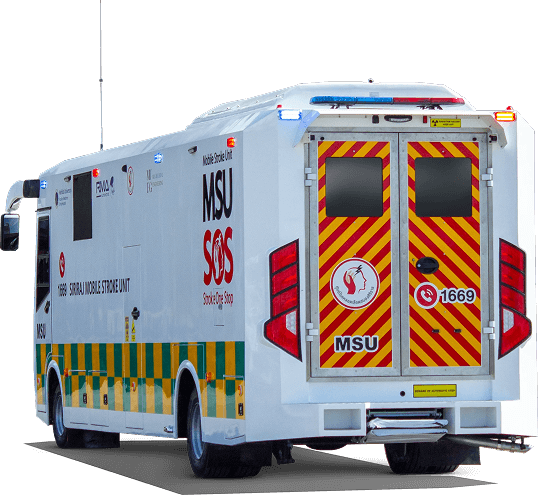
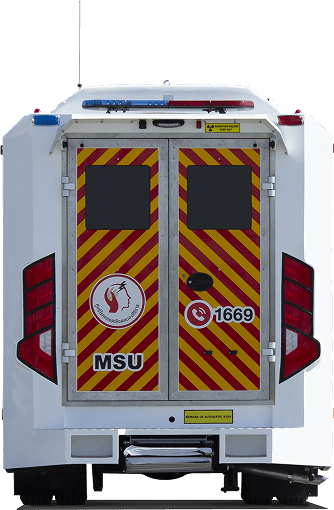
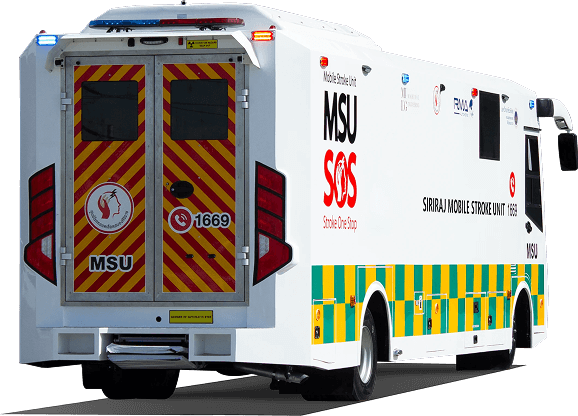
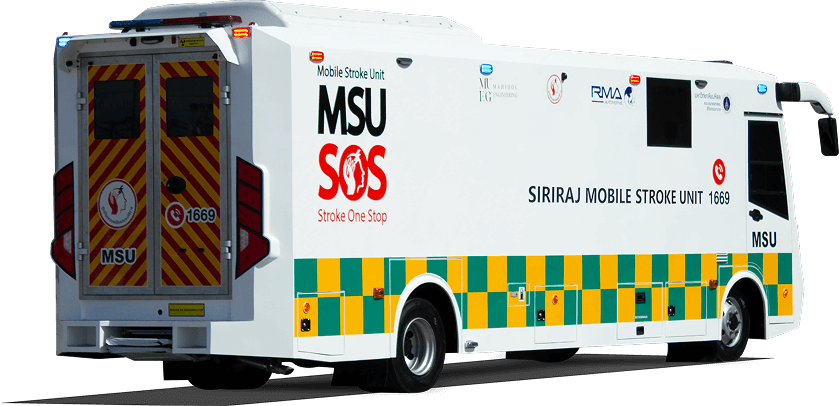
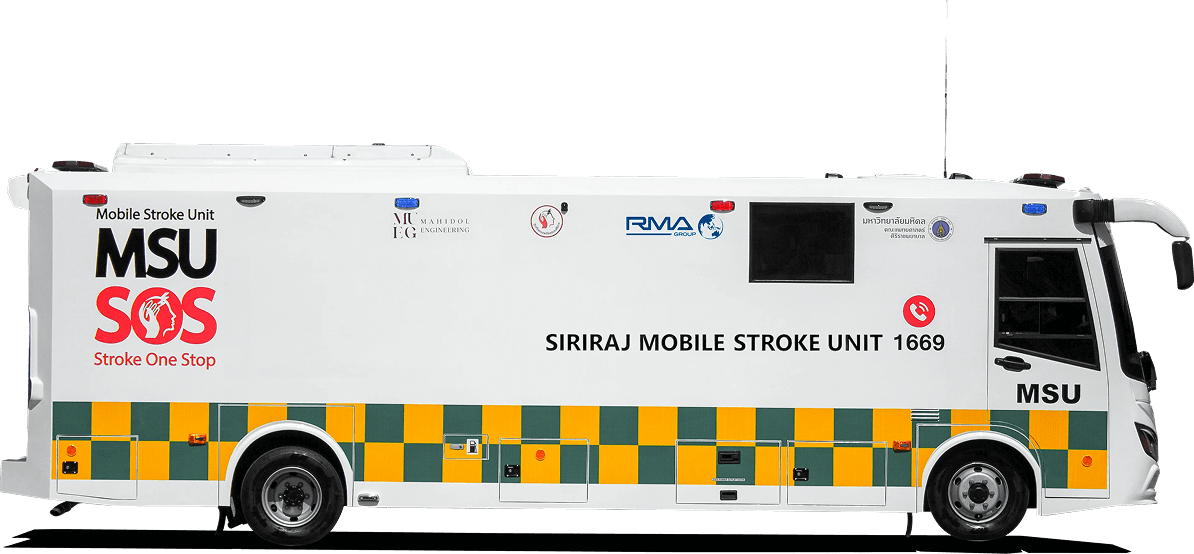
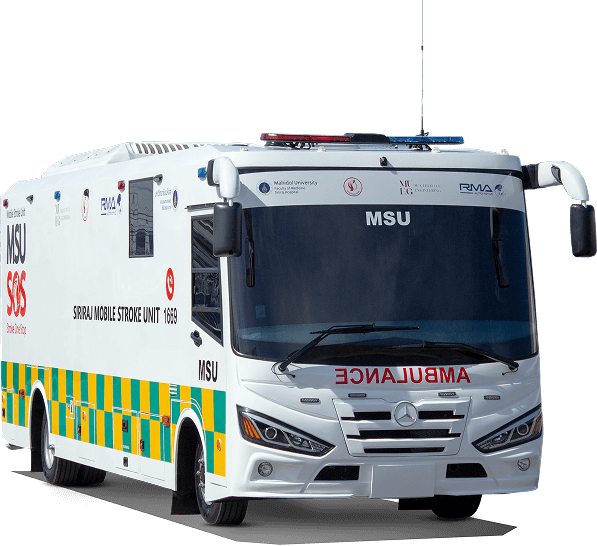

Specifications
All of the structural and welding designs are validated according to NHTSA and ECE standards requirements.
The CT scanner mounting design is a common structure for various CT scanner models, and it is analyzed to determine its strength according to ECE standard requirements.
The system was designed to integrate patient transport and loading system, including height adjustment to match with CT scanner protocol.
This feature is to support the vehicle height adjustment. It lowers the vehicle to facilitate patient loading and offloading.
A utility integration system that enhances driving performance and records data in both the driver and passenger compartments while in operation.
TPMS continually monitors tire inflation pressure and informs the driver when it goes below a specified threshold. Tire performance qualities are improved, while tire life is increased.
Interior layout design according to specific ergonomic requirements with medical-grade interior fittings, anti-bacterial and anti-slip floors.
Made of aluminum which is light and offers good corrosion resistance, the electric step also has an automatic stop and retract function when the rear door is closed.
Patient compartment panels are fitted with lead sheets and glasses to protect against radiation from the CT scan operation and also tested by Regional Medical Sciences.
High electric power consumption Hybrid Inverter (220V/8kW) with lithium batteries to support the CT scanner and all medical equipment. Touch screen monitor to activate and monitor the electrical part status and functions.
System designed and set up for doctors in the hospital to interface with patients in the medical-bay.
Specific high-intensity Interior lighting (1650 lux) with front/rear light bars and surrounding emergency lights according to ambulance standard compliance.
Intelligent design to maintain interior temperature control while the vehicle is on the road and in standby mode at the hospital.
News
FAQ
The CT scanner mounting structure is analyzed to determine its strength according to European standard requirements
The system was designed to integrate with lithium batteries to support patienttransport and loading system
This feature is to support the vehicle height adjustment. It lowers the vehicle to facilitate patient loading and offloading.
A utility integration system that enhances driving performance and records data in both the driver and passenger compartments while in operation.
